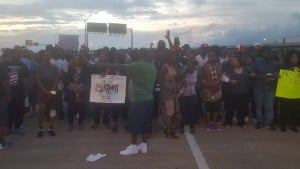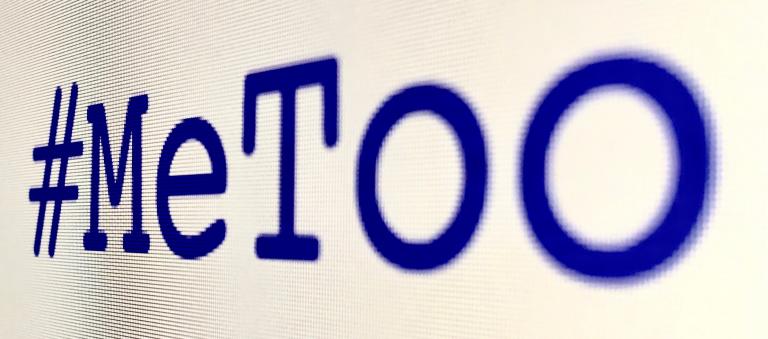First posted at Symposium Ethics.
On July 13, 2015, Sandra Bland mysteriously died in a Waller County, Texas jail cell. In light of the video evidence of her detainment and circumstances surrounding her death, Sandra Bland’s family, friends, and community do not accept police officials’ claim that she committed suicide in her cell. After preliminary investigations, on December 11, a grand jury heard evidence related to Sandra Bland’s death in order to decide whether or not to issue indictments.
Whether or not the Waller County grand jury decides to issue an indictment, we–Christian ethicists and those concerned with Christ-style love and justice–need to issue our own. We have plenty of evidence to believe that Sandra Bland was a victim of intimidation, violence, unlawful arrest, and death. When she died, she was not free; she was, instead, in the charge of the very institution that exists to protect (some) citizens’ safety. She was in police custody.
The day after Sandra Bland died, Kindra Chapman was found dead in her Homewood, Alabama jail cell. The cognitive and material dissonance caused by the deaths of these two women who were in the custody of those charged to serve and protect, have led people to flock to social media to interrogate and refute the county officials’ testimonies. Twitter and Facebook users employed the conditional phrase “If I die in policy custody” to offer directives for their friends and family in case they met their demise in jail. Many of the tweets included a note that the person’s death was not by suicide.
Doesn’t it seem absurd that black people feel the need to preemptively offer a post-mortem deposition? Such a felt need ought to make us ask whether the deficiency of black safety, the questioning of the value of black lives, and the interrogation of black self-articulation can lead to anything other than a kind of blackness that has to be lived anachronistically. This blackness is always conditional and framed by confinement and death. Are black lives, black selves, and black dreams already history in the present? Is the spatial and temporal context of the jail cell a microcosm of the box within which white supremacist capitalist patriarchy presumes to contain blackness?
As a scholar, I am interested in the moral backing–the ethical assumptions–that inform such a frame. I believe we can find it in the interaction between Sandra Bland and the arresting officer. There is a specific moment in their interaction when the officer feels threatened, not necessarily by Sandra Bland, but by the implications of her unapologetic resistance to his authority. It was in that moment that he decided to take her into custody without providing her a legitimate reason for her arrest.
According to the video evidence, the officer seemed to want two things. First, he wanted to be appreciated for what he presumed to be his own leniency. Second, he wanted respect. When Sandra Bland did not display the proper gratitude for his “warning ticket,” and when she did not offer him any unearned respect, the officer felt that he was in danger. His safety was synonymous with his authority; his dander, synonymous with being treated as an equal. We must pay attention to the implications here. His whiteness, uniform, and badge afforded him the perspective that anything that questioned his superiority (as in authority) was a threat to his safety. This fear masks what was really at stake: Sandra Bland’s actual freedom and life, both of which were in danger because they were coupled with her resistance and self-assertion.
The moral issue to consider is white male fear of the loss of authority and how that fear manifests on black bodies. The question for us is about what it means when black women, black people, people of color, queer folks have the audacity, the unction, to question authority. Audaciousness is, in fact, a threat to a system of oppression merely because it illustrates an unwillingness to be suppressed underfoot all of the time. This is what we can see in Sandra Bland’s arrest video.
There is something else with which we have to contend. At some point during the arrest, another officer–a woman–steps in and sides with the first officer, as she is trained to do. She has no idea what has transpired between Sandra Bland and that officer up to that point, but she unquestioningly sides with the officer, as he drives his knee into Sandra Bland’s back and Sandra screams her complaints. We need to disavow this kind of individual and collective collusion with power and authority that happens without hesitation. Such collusion aids in the continued oppression and vilification of the poor, the least of these.
So what else are ethicists to say and do? We are to lift up the value of resistance, the virtue of unction, and the sacredness of their existence in black self-expression. And as we figure out the proper words and actions for ourselves as ethicists, we can learn from one another. When I told some religious scholar friends that I was composing this essay and asked them what they would include, their answers were raw and unapologetic. One sister-scholar, Benae Beamon, said this:
Write that her story was capitalized on out of convenience and her work and life exceed anything we could ever describe. Write that her body is suspicious because of the imagined danger of an enlightened black female mind, of someone who knows. And write that she’s not a martyr and that the myth of her martyrdom continues the same dehumanizing violence that cut her down.
#IfIDieInPolicyCustody is certainly a collective lament for the seeming un-livability of black lives, but it is also an indictment against the individual and systematic application of a belief that blackness shall not exist outside of the brackets of imprisonment and death. So, let me be clear. If I die in police custody, it was not by suicide. It was by the hand of militarized communal protection, underwritten by unconstrained white supremacy. It was by the hand of apathetic recipients of American neoliberal capitalist privilege. It was by the hand of those who wish to protect their own at the cost of mine. It was by the hand of our ongoing denial of black life.
For more at Symposium Ethics, click here
Thelathia “Nikki” Young is Assistant Professor of Women’s and Gender Studies and Religion at Bucknell University. She is currently working on her manuscript, Indecent Family: Black Queers, Ethics, and Imagination.













